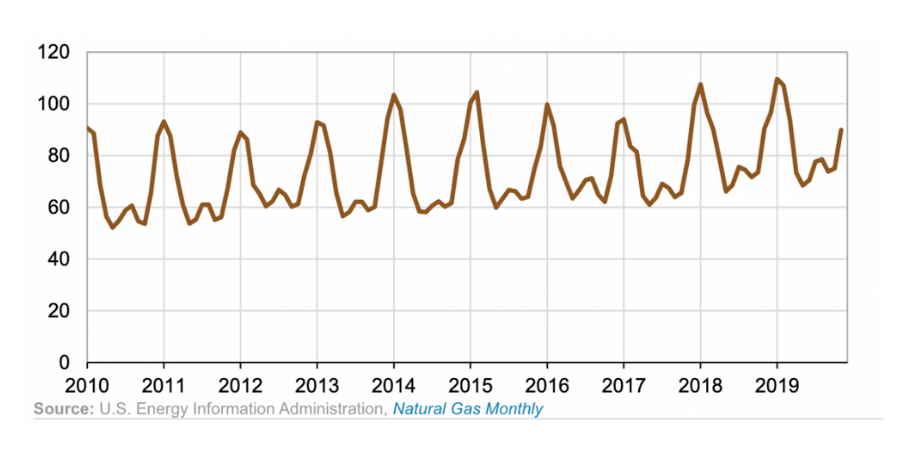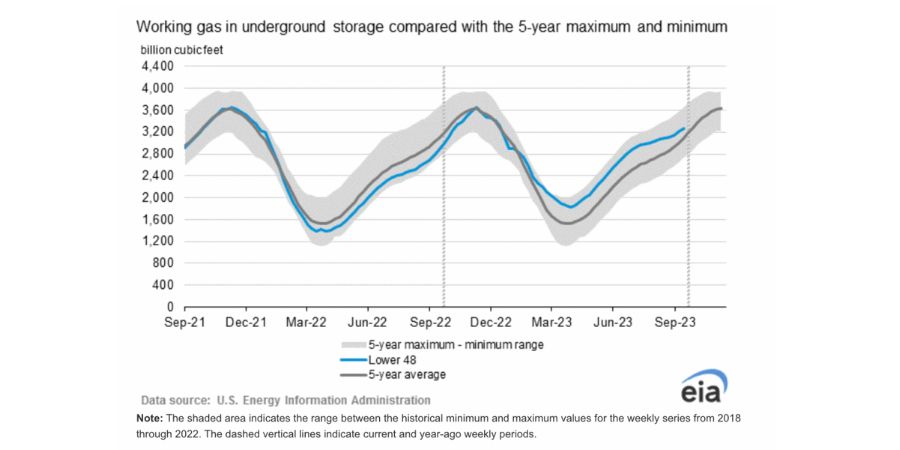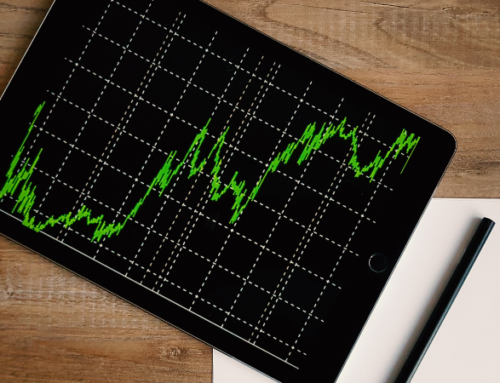Natural Gas For Business: Choosing The Right Commercial Gas Plan
There are many things to keep in mind when looking for a commercial natural gas rate for your business. From the right type of natural gas supply contract to the total amount of volume required, energy managers have a lot to wrap their heads around before signing up for an energy contract. Let’s explore some of the most important elements of shopping for energy plans below.
Natural Gas Needs Based Off Volume Requirements
First, all natural gas rates from natural gas suppliers are based on your total annual natural gas consumption. In fact, there are two types of natural gas consumption patterns for commercial customers: heat loads and flat loads. Let’s explore both in more detail below.
Heat Loads
A heat natural gas load is a natural gas usage pattern where the majority of the natural gas consumption is in the Winter months. In fact, most natural gas providers define heat load customers as those who use more than 50% of their annual natural gas consumption in December, January, and February. These customers typically use natural gas for heating purposes only and include retail stores, office buildings, multi-family properties, and grocery stores.
Flat Loads
Flat natural gas loads, on the other hand, are usage patterns that are relatively consistent throughout the calendar year. That is, the customer’s gas usage is consistent over a twelve-month period, with less than 50% of its total usage in the Winter months. Businesses that have flat loads use natural gas for both heating and other purposes, such as heating water in hotels, baking pizza, or cooking.
The customer’s type of natural gas load dictates energy supplier fixed rates due to the risk the supplier assumes when trying to project natural gas consumption. The flatter the load, the easier it is to predict future consumption, and retail rates tend to be lower. Heat loads carry a greater risk as usage can fluctuate drastically based on Winter temperatures. These rates are often higher.
Choosing A Natural Gas Supplier
There are many things to consider when choosing a natural gas supplier for your business such as price, supplier credibility, and supplier financial stability. The factors that are most important to you will depend on how critical natural gas is for your business operation.
For example, if you operate a commercial laundry facility and spend multiple six figures annually on natural gas, choosing a supplier that is credible and has financial stability might be more important to you than finding the lowest price. After all, a low rate from a supplier that cannot honor their fixed-price contract could be a serious risk for your business.
On the other hand, if you operate a pizza shop and finding the lowest rate is most important, then you are on a search for the lowest-priced natural gas companies. Most small businesses in deregulated markets have the option to switch back to the default utility supply rate if the gas supplier goes bankrupt or cannot honor a fixed rate. If you only consume a small amount of gas and are not worried about that risk, finding a smaller supplier with a low rate might be your best bet.
Natural Gas Rates & Market Trends
The natural gas market, like any commodity, is quite volatile and moves up and down with gas supply and demand. However, due to its importance in heating homes and businesses, natural gas prices tend to be seasonal as well.
In fact, if you take a look at these natural gas forward curves published by the EIA, you will see that natural gas prices trend upward in the Winter months and downward during the Summer months. This has to do with the cyclical nature of demand for natural gas in the Winter.
Winter Months: Higher demand for natural gas due to heating. Prices are higher during these months due to increased demand.
Rest Of Year: Lower demand for natural gas due to non-heating. Prices are lower during these periods due to less demand.

In summary, when you are shopping for gas rates, it is important to keep in mind these seasonal trends. Another key aspect that dictates the overall price of natural gas is the amount of natural gas supply available in the market. During the non-Winter months, natural gas producers pump gas into storage facilities for the Winter. Every week, the EIA publishes a natural gas storage report that indicates the total amount of natural gas supply available in storage. A sample of that report is below:

Higher storage levels indicate that there is an abundance of natural gas supply to meet future Winter demand. When storage levels are high, natural gas markets tend to trend downward, and vice versa.
Natural Gas Plan Options
Retail energy suppliers offer several different types of natural gas rate options to commercial customers. These options span from standard fixed rates to market-based rates, to a hybrid of the two. Let’s look at some of the popular gas plan options in more detail:
Fixed Rate Gas Plans
These plans, similar to their electricity counterparts, offer a fixed rate for each unit of natural gas consumed by a customer over a fixed period. Fixed rates can be short-term (less than 6 months), or long-term (up to 5 years). This is a good option for most businesses that are looking to find a good rate, set it, and forget it (until it’s time to renew your energy contract, that is).
Index Rate Gas Plans
These are index-based energy plans that follow the ups and downs of the wholesale natural gas market, or the NYMEX. Most suppliers offering index-based gas rates calculate the total rate as a summation of the NYMEX settlement price plus an adder for the supplier’s profit margin. These are good rates for those businesses that are able to pass through their energy costs to their customers.
Hybrid Gas Plans
Hybrid gas plans allow commercial customers to take advantage of both fixed-rate and market-based natural gas prices. In a hybrid plan, a customer can fix their gas prices during volatile times (e.g. Winter) and float on the NYMEX market at other times. This is a good option for larger customers looking to actively manage their gas costs.
Hiring An Energy Broker When Shopping For Gas
As you can see, the natural gas markets might seem simple but can get very complex depending on your business’s usage profile. It’s best to hire a natural gas expert who can help you navigate gas rates and make the best decisions. Energy brokerage firms and seasoned energy brokers are professionals who understand U.S. natural gas trends, have relationships with the leading natural gas suppliers, and can help you negotiate the terms of your next energy contract.
Need A Low Natural Gas Rate?
Our team of energy professionals has over 100 years of combined experience working in the natural gas markets. We understand heat loads, flat loads, fixed rates, and NYMEX hybrid products, so we can thoroughly educate you on your gas options. Contact us today to explore more.



